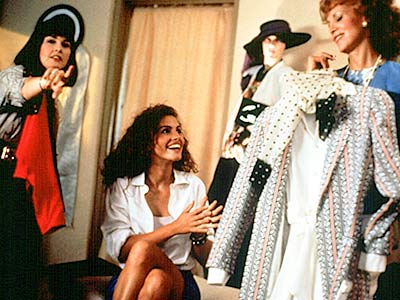
In Pretty Woman, Julia Roberts’ character is disrespected by a saleswoman in a posh store. An embarrassed Julia leaves, only to return the next day with her wealthy hero, played by Richard Gere, who promptly urges the apologetic store manager to ramp up the customer service that was denied to Julia: “I think we need some major sucking up,” he urges.
It was a funny and memorable scene, but in reality nothing could be further from the truth. Kissing up and over-servicing the affluent consumer is a turn-off and a mistake in 2012.
What the affluent don’t want is pre-packaged, off-the-shelf gratuitous “service” that reeks of insincerity. It makes the luxury experience less luxurious, and makes the customer feel, well, dirty.
What they do want is personal, sincere service delivered quietly and discreetly. They want the server to anticipate their needs and therefore not need to fall all over themselves trying to correct something that should not have happened in the first place. It’s about anticipation and appropriateness.
Now, we need to note that there is a dramatic difference in the perception of customer service between the affluent and the aspiring affluent. For the demo that is actively engaged in the pursuit of affluence, the kissing-up ritual is an important affirmation of the quest to the top. The aspiring affluent not only like the show, but actually thrive upon it.
So, while Gere wanted the kissing-up for the sake of Roberts, it would not have worked for him. In fact, according to our research, it would have sent him running from the store.
For the marketer, the challenge is to differentiate between those who are searching for the adulation that dripping-sweet customer service provides, and those who see it as pandering and offensive.
As if this marketing thing isn’t hard enough.